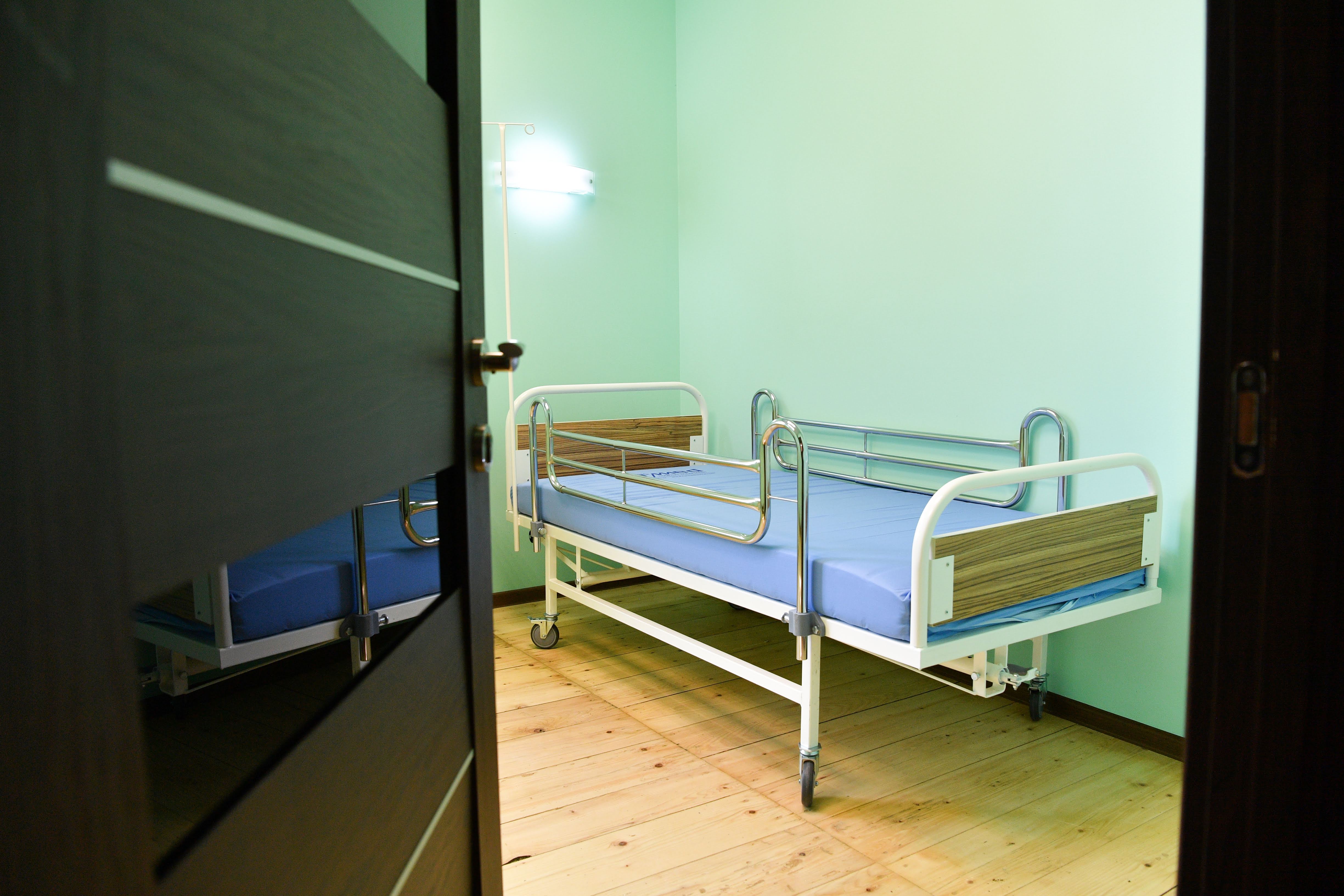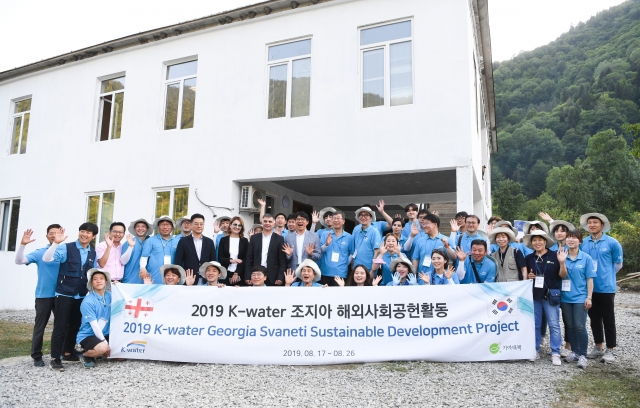Chuberi Meets the Threat of COVID-19 with a Completely Renewed Ambulatory Clinic
In the times of the coronavirus pandemic, the work of local ambulatory clinics in the regions has become even more vital, which is still a problem in many villages. In this regard, after August last year, the situation improved in the village of Chuberi, Mestia Municipality, where the ambulatory clinic was fully rehabilitated with the funding of JSC Nenskra Hydro and Korean Water Resources Corporation K-Water.
As part of the rehabilitation, the second floor of the building was completely renovated, the day and the so-called luxury rooms with bathrooms were arranged, as well as a family doctor's reception, patient examination rooms, and conference hall.
Family doctor Tea Tsindeliani, who has been working at the Chuberi Ambulatory Clinic for 5 years, says that after the rehabilitation, the working conditions of the doctors have significantly improved and, consequently, their work has become more efficient.
"The building where the ambulatory clinic operates today was an ordinary residential house 7 years ago. The village bought it and turned it into an ambulatory clinic, but due to lack of finances, only the first floor was set up, and the second floor was completely unuseable. No-one had funds to repair it. But after the donation [from JSC Nenskra Hydro and K-Water], the second floor was fully repaired. Full-scale hospital rooms with bathrooms, a reception of family doctors, and separate examination rooms were arranged, which makes it easier to work and manage the flow of patients effectively," said Tsindeliani.

Considering the background of the new global challenge, ambulatory doctors serve patients in a remote way to prevent the spread of coronavirus, treating them at the hospital only in cases of emergency. It also became necessary to take care of the safety of the medical staff. According to Tsindeliani, the ambulatory clinic is regularly disinfected with the help of Nenskra Hydro.
"Because of the spread of the virus in the country, we mostly serve patients remotely, providing telephone consultations, and only treat patients on site in case of emergency. Disinfection at the ambulatory clinic has already been done with the help of Nenskra Hydro. But we have a request: if there are resources to do so, give us disinfectants," said the family doctor.
Mariam Kopelashvili, an ambulance doctor who was directly involved in the rehabilitation of the Chuberi Ambulatory Clinic, said that appropriate equipment at the center is an important aid for both patients and doctors.
"Apart from providing patients with much better medical care and treatment in modern rooms, rehabilitation has certainly made work easier for doctors. The process of working with patients has become easier and more comfortable," said the ambulance doctor.
Kopelashvili says that as yet, no calls related to symptoms of coronavirus have been recorded Chuberi, and referrals are mostly related to cases of arterial hypertension and trauma during spring works.
"Currently, there is no ambulance car on the balance of Chuberi Ambulatory Clinic, however, it is quite a long way to some villages in the valley to get to a patient operatively. In this case, Nenskra Hydro often helps doctors with their ambulance car," she said.
Chuberi Ambulatory Clinic was opened on August 23 last year after full rehabilitation funded by Nenskra Hydro and K-Water. Today, the medical center provides assistance to local residents with improved conditions and renewed infrastructure.
From 2015 to date, Nenksra Hydro has implemented social projects worth GEL 2 million in Chuberi and Nakra. Within the scope of Access to Mechanization Project, the company provided about 200 families with free heavy machinery service, assisted them in the improvement of lands and the arrangement of internal village roads. In addition, Nenskra Hydro funded the Nakra riverbed cleaning and bank reinforcement works. Recently, the full rehabilitation of the Chuberi Culture House and Sports Complex was completed.
In addition to infrastructure projects, the company is working to develop small and medium-sized businesses, as well as support vocational education.
JSC Nenskra Hydro is a project-based company established in 2015 as a result of cooperation between a state-owned Korea Water Resources Corporation (K-Water) and JSC Partnership Fund. The company is developing the Nenskra Hydropower Plant Project in the Nenskra and Nakra River Valleys in the Mestia Municipality of Samegrelo-Zemo Svaneti region. The 280 MW Nenskra Hydropower Plant will generate approximately 1,200.00 GWh of electricity annually, which will be fully consumed by the Georgian market.
Watch the video here.












